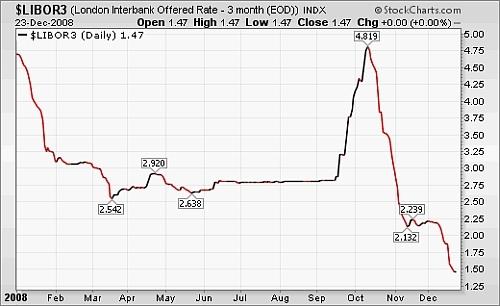How the Credit Market Being Affected by Caronavirus

What is the Credit Market?
Credit market refers to the market through which companies and governments issue debt to investors. These include investment-grade bonds, junk bonds, and short-term commercial paper. Sometimes called the debt market, it also includes debt offerings, such as notes, and securitized obligations, including collateralized debt obligations (CDOs), mortgage-backed securities, and credit default swaps (CDS).
Understanding the Credit Market
The credit market makes the value of the equity market lower in terms of dollar value. As such, the state of the credit market acts as an indicator of the relative health of the markets and economy as a whole. Some analysts refer to the credit market as the canary in the mine, because the credit market typically shows signs of distress before the equity market.
The equity market is a market in which shares are issued and traded, either through exchanges or over-the-counter markets. Also known as the stock market, it is one of the most vital areas of a market economy. It gives companies access to capital and investors a slice of ownership in a company with the potential to realize gains based on its future performance.
Other parts of the credit market are slightly more complicated. They consist of consumer debt, such as mortgages, credit cards, and car loans bundled together and sold as an investment. As payments are received on the bundled debt, the buyer earns interest on the security. However, if too many borrowers (in the bundled pool) default on their loans, the buyer loses.
Impact of Caronavirus on Credit Market
The world’s weakened effort to contain the coronavirus outbreak led to a hit in stocks and crude oil on Monday. As new cases surfacing across the globe amplified fears of a downturn in the market.
Worldwide cases of COVID-19 have topped 109,000 — with Italy emerging as the worst-hit country outside of China and the biggest in Europe, as new infections rise in the U.S. Now that the Italian government is moving to quarantine its entire northern region, it has raised new fears about the pathogen becoming a global pandemic, sending markets into a free-fall.
We just heard from President Trump today that he would press lawmakers to enact a payroll tax cut and ensure assistance is available to hourly workers while the coronavirus pandemic is causes deep economic concerns and stock market shock. Most economists estimate that the hit to the oil market will result in lower gasoline prices, which will act as a mock presentation of what taxes could look like, not what they will look like by law.
Overall, the caronavirus is hurting the credit market, Wall Street, and the economy across the globe. We just heard today how it has spread throughout Italy and USA with no mercy as the illness rate has risen dramatically.
There is no telling how long the caronavirus will last, or how long it will be affecting the markets, however the US government is still trying understand what their next steps are to saving the economy.
